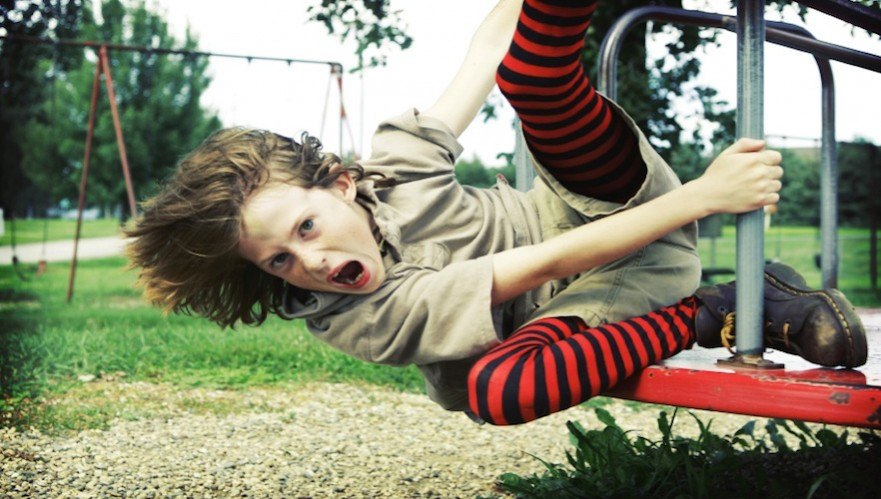That Kid is a Bad Influence!
Out-of-the-blue, your boy comes home and declares he doesn’t like girls. Or your girl is totally obsessed with her BFF and is imitating her anti-social traits. Friends inevitably take a front seat in our childrens’ lives, and we parents cross our fingers in the hopes that our children are choosing well for themselves. But when our kids start behaving in off-putting ways, reminiscent of a certain special buddy, we are forced to question the friendship. Now what? Break it up or have faith your kid can stand up to the negative influence? Dr. Michele Borba, child and parenting expert, shares some tips on how to tackle the issue of peer influence. — Laurel Moglen, Web Content Producer, TMC
What To Do When You Don’t Like Your Kid’s Friend — By Dr. Michele Borba
Ask questions and listen. Try to find out just why your child is attracted to this pal. The answer can be very enlightening: Is your child bullied and in need of protection? Has the other group just booted her? Is he lacking friends? Does that kid have video games you don’t allow? The right questions — calmly asked — can help your child think the matter through and decide if this person is really a good friend. Halt the judgments, and gather the facts. Of course, a little one may not be able to provide those clues, so you need to play detective. Watch the twosome a bit closer. What interests your child about being with this friend? Temperament? Toys? Same interests? Similar activity level? Tune in especially when your child shows the most interest. What’s happening at that moment?
Watch for red flags. The secret is to look for changes you’ve noticed since your child began hanging out with this new companion. Have you noticed an increase of potty talk, hitting, or a new level of defiance? Those are real red flags that this pal is becoming a negative influence.
Make your house kid-friendly. Have playdates at your house when you’re around. It will help you get to know your child’s friend. In addition to feeling more comfortable because you know where your kid is, you’ll also be able to keep your ears open to determine if your concerns are really grounded. It’s possible you may also discover that you actually like your child’s pal and have short-changed his virtues!
Ask other adults. Talk to a parent, daycare worker, teacher or coach who knows the other child. Do they share your same concerns? The preschool director, teachers, or school counselor can often offer a different, fresh perspective.
Monitor closely. When the kids are playing alone together, pop in every once in a while, to see how they’re getting along. Also, try to get to know the pal’s parents. Do they supervise their kids? How do this kid act with his parents? Do you feel comfortable having those parents supervise your child when you’re not around?
Share your concerns. Kids age 3-6 are impressionable, so parents need to carefully express their concerns. It’s not about making the other kid a “bad guy.” Focus instead on your child’s behavior. Describe the changes you see (not listening, not taking turns, acting out) in your child. Then restate (again and again) your family rules and values, as well as consequences for unacceptable behavior. “Remember, in our house we treat everyone nicely.” “In our family we share so everyone has a turn.” Emphasize that these rules exist no matter who he is playing with, in whatever home he is visiting, and regardless of what other kids are doing. Talk to her about making good choices even though other children might choose not okay ones.
Step in when serious issues emerge. If the pal is clearly a “bad influence,” that is, your child’s safety, behavior or character are at stake, it’s time to draw a halt to the relationship. This may be easier said than done. Help develop friendships with other children he’s mentioned by planning play dates with them. Get her involved with an after-school class or sport to expose her to more potential friends. Remember, these are the years when parents have the greatest influence on their children’s choice of friends. Younger children are more likely to befriend pals who are accessible to play with (they live next door, are in the playgroup, frequent the playground). So look around for other children who seem to share your child’s interests and invite them over!
The Parenting Secret: Keep in mind that a kid is rarely “made bad” by another kid, but the friends your kid chooses to hang around with sure can increase the odds that he may–or may not–get into trouble. If this kid could damage your child’s character, reputation, or health, it’s time to step in.
Dr. Michele Borba is an internationally renowned educator, award-winning author, parenting,child and adolescent expert. She has written 23 books including, The Big Book of Parenting Solutions: 101 Answers to Your Everyday Challenges and Wildest Worries. You can follow her on twitter @micheleborba.
The Mother Company aims to support parents and their children, providing thought-provoking web content and products based in social and emotional learning for children ages 3-6. Check out the first episode of our children’s series, “Ruby’s Studio: The Feeling Show.” We want to be a parenting tool….For you!
Posted in: Expert Advice, Friendship, Learn